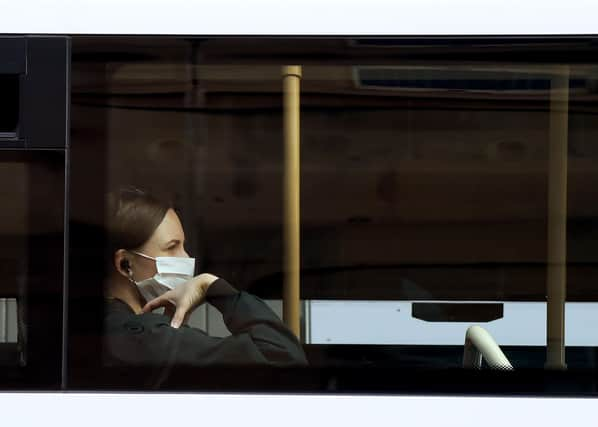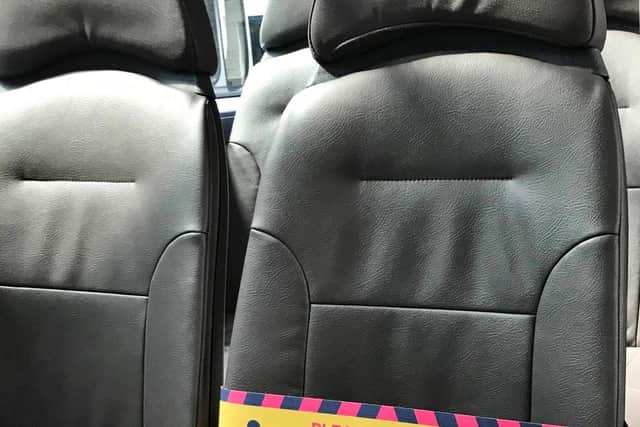How can we make public transport both safe and viable? - Alastair Dalton


It is going to be a delicate balancing act.
On the one hand, ministers will be anxious to continue suppressing Covid-19 in Scotland by dissuading people from using public transport, which, by its nature brings them into relative proximity with each other, and has massively reduced capacity as a result.
However, on the other hand, they will be mindful of the imperative to get the country – and economy – moving again without everyone switching to their cars instead, with the gridlock, and environmental and health problems that would exacerbate.


Advertisement
Hide AdAdvertisement
Hide AdTransport Secretary Michael Matheson will also be all too aware of the vast extra financial support he is having to provide to keep ScotRail, Caledonian Sleeper, CalMac and bus firms operating.
Six months’ additional funding for the rail franchises will top £250 million alone.
The other pressure that both the Scottish and UK governments will have to contend with is the clear message coming from across the transport sector that distancing between passengers is not viable.
With the current level of additional subsidy being pumped in, ministers are likely to privately agree.
The aviation industry was first to point out that leaving a seat free between passengers would make flying financially unsustainable – and even then, they would still be less than 1m apart.
ScotRail has warned travellers that despite reducing capacity by around 80 per cent, distancing will not always be possible on trains.
On the buses, as The Scotsman revealed yesterday, research is under way to increase the number of passengers who could be accommodated, such as with screens between seats.
But this would only increase capacity to around 50 per cent of normal.
Advertisement
Hide AdAdvertisement
Hide AdHowever, CalMac’s ferries are likely to be the biggest pressure point, with capacity cut even more than on other forms of transport when there is no other travel option available on several of its west coast routes.
The wearing of face coverings has become the norm on public transport and this is seen as easing the situation slightly.
They may reduce the spread of the virus a bit, such as from passengers who don’t realise they are carrying it by showing no symptoms.
However, operators see the biggest advantage as the extra reassurance the measure signifies to other travellers.
First Minister Nicola Sturgeon has repeatedly pointed out the safety of any physical distancing is relative, so keeping 2m away from other people is not entirely free of risk.
Sharing confined spaces, such as on transport, will therefore continue to be a hazard, just as it has always been with the potential to contract other infections, such as the common cold.
However, there is also an element of risk in other spaces, such as shops, which will remain unavoidable destinations for large numbers of people.
But maybe something good can come out of this that benefits all of us?
Advertisement
Hide AdAdvertisement
Hide AdIn the case of public transport, it could be passengers being more mindful of their fellow travellers.
Being more aware of the consequences if they feel at all ill so they decide not travelling would be best not just for themselves, but for everyone.
Being more patient in letting others move around, such as getting off trains before trying to push on board.
Even treating the toilets with more respect.
Everyone is likely to have become a more cautious traveller.
But that could also make it a more pleasant experience all round.
A message from the Editor:
Thank you for reading this story on our website.
While I have your attention, I also have an important request to make of you.
With the coronavirus lockdown having a major impact on many of our advertisers - and consequently the revenue we receive - we are more reliant than ever on you taking out a digital subscription.
Subscribe to scotsman.com and enjoy unlimited access to Scottish news and information online and on our app.
Advertisement
Hide AdAdvertisement
Hide AdWith a digital subscription, you can read more than 5 articles, see fewer ads, enjoy faster load times, and get access to exclusive newsletters and content.
Visit https://www.scotsman.com/subscriptions now to sign up.
Our journalism costs money and we rely on advertising, print and digital revenues to help to support it.
By supporting us, we are able to support you in providing trusted, fact-checked content for this website.
Joy Yates
Comments
Want to join the conversation? Please or to comment on this article.